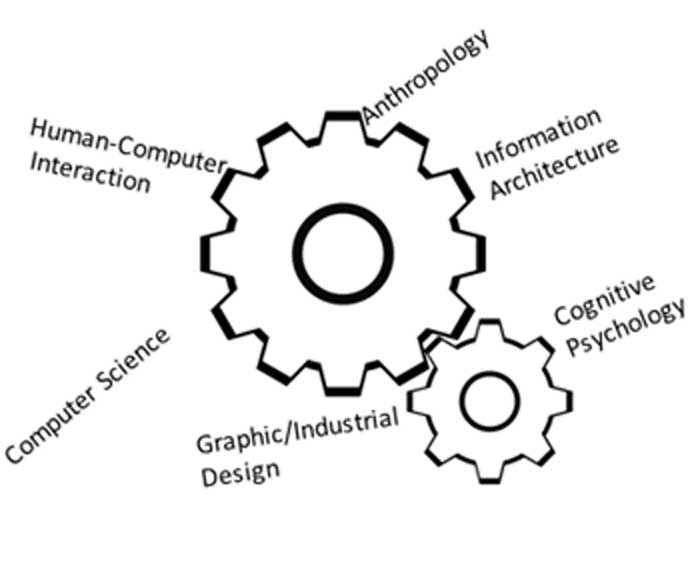Design appeals to many as a demanded, attractive profession in the modern digital world. Young people think that being a designer is all about creativity and genius, and in many cases, it really is. However, web design is also about technicalities and coding, mobile app design agency and these components cannot be removed from the professional equation.
So, is web design, and UX design, in particular, a privilege only for people with a diploma in web design? Can enthusiasts without formal education but with lots of enthusiasm enter the profession and succeed in it? Sure, they can, if they study hard and pick high-quality instruction. There are some key elements for becoming an excellent UX designer. Here, we’re giving away some shortcuts to one’s self-directed UX design education.

No matter how inspired by UX design you are, you’ll still need to take a deeper look into what this professional sphere represents. It is critical to stay realistic and focused on detail when dealing with your possibly new profession, as investing time and effort in self-education on the subject you don’t like is nonsense. So, you can learn more about the fundamentals of UX design to move on in your self-education journey.
The questions you will probably need to answer yourself include:
UX design is mostly about style, the feeling of visual esthetics, and commonsense ideas about usability. Still, it’s also about wireframing and prototypes, a bit of coding, etc. So, you will need to study all these aspects step by step to proceed to the UX design practices.
Whenever you learn something on your own, you face the challenge of too broad a choice. The Internet has made our access to valuable learning materials unlimited, and students often end up studying forever or wasting time on mediocre content. So, we recommend researching the UX design area first to choose a couple of proven and accredited specialists you admire. This will give you a study guideline and protect you from tons of irrelevant manuals and masterclasses.
To date, UX designers that enjoy worldwide fame and deserve beginners’ attention are:
These and many other interesting people can inspire you with their design approaches, solutions, and projects. Follow your favorite UX design masters on social media, visit their masterclasses – and you will get a real feel of the UX routines.
Design thinking should become an integral part of your life if you want to capture the essence of UX design. UX is primarily about a product’s usability; it helps the company make its product simple, intuitive, and enjoyable for the users. Thus, your task is to walk in the user’s shoes and see which sequences of actions should take them to the desired goal quickly and easily.
Design is in everything around you. Just walk around, and you will see tons of (un)successful decisions in cafés, parks, residential areas, supermarkets, kid entertainment spots, etc. Mind those issues and think of how you could improve the design for better usability. Those considerations can serve as exciting training sessions available for you without any formal design class.
In the epoch of YouTube and Udacity, everyone can learn any skills they need for a profession. Obviously, you won’t become a doctor or an engineer without higher education, but mastering innovative digital professions is a more attainable goal. Therefore, it is time to google the terms of your interest and get a couple of lectures and workshops for mastering UX.
There are months of valuable video content on YouTube that can take you one step closer to the dream job. Start with general inquiries like “UX design,” “wireframes,” “UX research,” etc. Take notes when watching the lectures and then narrow down the search to more concrete topics. You’re sure to become more competent on the subject in a couple of weeks.
Learning UX design is not only a matter of theory. You need to be alert to the latest changes in the industry and stay in touch with real people employed in that area. Meetups and conferences on UX/UI are an excellent opportunity to do networking as well. You’ll find valuable connections and interesting people there, jumpstarting your career and getting more people for discussions and advice.
After you master some key UX terms and concepts, the time comes for real studies. Be sure to pick a high-quality course with much practice and personal feedback from a tutor to progress through your studies. In this way, you will take your UX knowledge one step up, mastering the theory and practice of a UX designer job. Besides, you’re expected to tie all web development processes into a coherent, clear sequence and understand your role in it.
Once you’re learned enough via courses, books, and free Internet materials, you can proceed to practice. This can be best done risk-free for you and the employer if you get an internship position in a large company. The bad news is that you won’t be paid. The good news is that you’ll receive a unique chance to watch UX designers work in real-life professional settings, contributing to their processes in some way. This may become a great adventure for everyone lacking a professional experience in a clean resume. So, reserve some time in your life for such an internship to get valuable expertise and progress in your UX career.
Now that you’ve acquired much theoretical knowledge and have mastered some practice, you’re definitely fit for a UX designer job. Be realistic about the lack of experience and hone your technical skills to achieve greater heights in this vocation. And never stop in your development as a specialist, thinking that now you know enough. In web design, things change every day, and no knowledge or expertise is ever enough. So, be ready for a lifelong journey to UX design perfection. Good luck!
